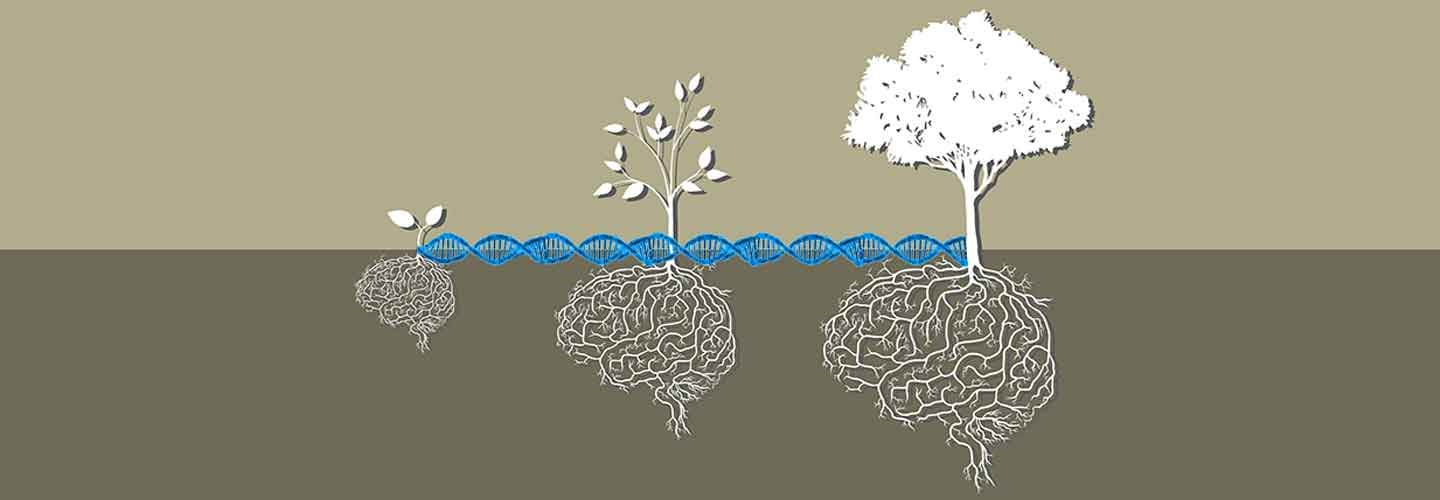Treatment Resistance and the Biopsychosocial Model
- Home
- Blog

Reader, with August around the corner, and the new school year, cooler weather, and everything else that follows, our summer days are quickly dwindling. For many individuals, this thought can lead to a feeling of dread. It may be hard to fathom where the feeling comes from—but I’ve spoken with enough patients that I’d like to make an educated guess: the heat and activity of the summertime can provide a much-needed distraction, from our routines, from our problems—and from our demons inside that bring us deep despair. This year, I want to encourage you to get ahead of those feelings by asking yourself a simple question: When’s the last time you felt truly well? If you’ve been on medication for a mental health issue, have you been able to notice a meaningful difference in the before and after? As the heat begins to cool, and we fall back into our old habits, patterns, and mindsets, don’t let the dread catch up with you. Instead, use this blog, and the biopsychosocial model, as a starting point to take control of your mental health through following the positive steps illustrated below.
The Biopsychosocial Model’s Role in Treatment Resistance
If you’ve been following along with my blog, you’ll certainly have learned a thing or two about the biopsychosocial model. However, I never pass up a chance to provide another review, because its tenets are truly the backbone of good psychiatric practice—and in this case, those same tenets can also be a beneficial starting point in terms of assessing and addressing treatment resistance. According to the biopsychosocial model, mental health and wellness exists at the intersection between our biology, our psychology, and our environment. This holistic model of health considers contributions from neurobiology, genetics, behavioral science, the unconscious mind, family systems, workplace/environmental stressors, and nutrition—all with the end-goal of designing and implementing a truly personalized, precise treatment plan. Participating in this thoughtful, thorough treatment process represents a real investment in your health—both mental and physical, both now and well into the future. For treatment-resistant patients, such an investment can change lives.
So why not get started now? The following four prompts, followed by a comprehensive checklist, represent the biopsychosocial model in action to help you figure out what other treatment options may be available to help you achieve a full recovery.
1) Assess Your Brain Function
Do you feel that your brain is not functioning as well as it used to? Do you have increased difficulties remembering and recalling? Is it becoming a challenge to stay focused? Are you becoming overwhelmed by day-to-day tasks that once came easily? Do you feel increasingly confused?
Take some time to reflect on each of these questions. I recommend you use a sheet of paper to write down your thoughts. Describe what is different and try to use specific examples. If you’ve been confused by tasks, for instance, jot down which ones. If you can’t stay focused, write down which circumstances this problem arises most frequently.
Some of these symptoms may be a sign of normal aging. Others may have reversible causes, such as an underlying mood disorder, low thyroid levels, or vitamin deficiencies. All, however, are a possible sign of brain dysfunction—and if your doctor dismisses your concerns by telling you to simply accept these symptoms as normal, you should find another doctor that can help you get to the bottom of it, leaving no stone unturned.
2) Assess Your Lifestyle
Whether we are aware of it or not, our daily habits can have a significant impact on our mental health outcomes. That impact does not just occur in terms of our mood: it occurs on a biological level. Many of our habits actually have the power to alter our DNA expression by turning a gene “on” or “off”. This field of study is known as “epigenetics”, and the lifestyle factors that do the tinkering are known as “epigenetic modifiers”.
Healthy lifestyle habits moonlighting as epigenetic modifiers can include regular cardio exercise, adopting a healthier diet, increasing your intake of fruits and vegetables, reducing your consumption of processed foods, improving sleep quality, and taking vitamins to supplement brain functioning like folic acid and B vitamins.
Are your lifestyle habits making you sick? If so, are you willing to change your lifestyle for the sake of improved health and well-being?
3) Increase Cognitive Stimulation
Our brains thrive when they’re able to make new connections. When we neglect to intellectually stimulate our brains, our mental health can suffer. Have you become a couch potato? Do you passively sit and watch television? If so, it may be time to change your habits, for the sake of your cognitive functioning.
Did you once enjoy learning? Are their bodies of knowledge that you would like to learn more about? Which subjects once intrigued you? How might you go about pursuing these interests? You might consider joining a class provided by a continuing-education organization, or engage in online learning. What are you willing to do to increase your cognitive prowess?
4) Assess Your Level of Socialization
The people we surround ourselves with are very much relevant to the “environment” portion of the biopsychosocial model of treatment. Our friends and family are our greatest mirrors, and if we don’t feel connected to them, or frequently feel hurt by them, our mood can shift and our wellness falters.
With that in mind, in this last section, I want you to consider your levels of socialization. You might guide your reflection with the following questions: have you withdrawn from the world? Do you no longer enjoy being around others? When did this begin? What was the context? Did it coincide with a major life loss? Might it be associated with feelings of depression or social anxiety?
If you do feel withdrawn and possibly depressed, I urge you to seek help. Having an active social life is a critical pillar for healthy brain aging—as important as physical fitness and intellectual stimulation. Are you willing to pick up the phone and call an old friend to catch up? Visit more with neighbors? What are you willing to commit to?
The “Build Yourself an Emotionally Healthy Brain” Checklist
- If you are under the care of a psychiatrist or psychiatric nurse practitioner, you should be evaluated and treated as a whole person under the biopsychosocial model. If your condition does not improve or gets worse, you may want to consider getting a second opinion or switching to a new doctor if one or more of the following circumstances describes your situation:
- I have not been tested for underlying medical problems.
- I feel like my doctor just keeps switching or adding medications to my regimen, without explaining why.
- My doctor generally rushes my sessions and doesn’t take the time to get to know me.
- I complain about side effects, and my doctor minimizes them as inconsequential, or I sense that they feel that I am inventing them.
- Drugs are prescribed for me without a detailed explanation as to the rationale behind choosing them and how they might help me.
- I ask for a clearly articulated plan of action, and my doctor won’t provide one.
- I have expressed my needs and frustrations to my doctor, and they dismiss my concerns or won’t address them.
- I don’t feel listened to oror respected.
- The doctor is frequently late in taking me into the office or doesn’t show up for appointments.
- My doctor lectures me, and it is not a true partnership to help me get better.
- They do not share in my goal of a complete remission of symptoms and a restoration of my prior level of functioning.
- I try to advocate on my behalf but feel that my concerns fall on deaf ears.
- I want to feel hopeful about a full recovery, yet I have lost hope, or no longer have faith in my doctor.
- High levels of anxiety should be evaluated and treated using the biopsychosocial model, including the following:
- Testing for an underlying thyroid condition
- Treating psychological factors such as traumatic experiences
- Addressing social and environmental stressors that promote learned helplessness and social defeat stress
- Antianxiety medication and cognitive behavioral therapy (including desensitization)
- Your brain is the organ of your mind.
- Optimize it’s functioning to…
- Improve the effectiveness of introspection, psychotherapy, and medication management
- Lessen the symptoms of a mood, anxiety or cognitive disorder
- Reduce the probability of developing a dementia
- Decrease the likelihood of developing many other chronic diseases
- Optimize it’s functioning to…
- Consider addressing the following epigenetic factors that may negatively affect the functioning of your brain cells:
- Inflammation, such as that caused by…
- Obesity—fat cells release cytokines and C-reactive proteins that are known to cause inflammation throughout the body, and are associated with psychiatric disorders in the brain, leading to alterations in neurotransmitter levels, neuroendocrine systems, and how brain synapses function
- Gluten sensitivity (assessed by the Cyrex Array 3 and 4)
- Delayed hypersensitivity food allergies (detected by specialized blood tests provided by Genova)
- Autoimmune diseases
- Chronic or recurring infections
- Alcohol or drugs of abuse
- Environmental stressors such as learned helplessness and social defeat stress
- Certain dietary and nutritional factors
- Endocrine diseases (such as a thyroid disorder)
- Dysbiosis in the microbiome
- Inflammation, such as that caused by…
- Reverse these destructive influences through DNA promoters that increase neurogenesis and mitochondrial energy production, and improve emotional, cognitive (learning, memory, attentional, and executive functions), and behavioral functioning. These promoters can be positively influenced by the following:
- Cardiovascular fitness exercise[i]
- Antidepressant medication[ii]
- Psychotherapy to reduce or eliminate sources of learned helplessness and social defeat stress.[iii],[iv]
- Healthy nutrition—a diet that is rich in lean protein, fresh fruits and vegetables, low-glycemic-index carbohydrates, olive oil, and sources of omega 3 fatty acids.[v],[vi],[vii]
- Eliminating food antigens and other sources of inflammation[viii],[ix]
- Prebiotics and probiotics[x],[xi],[xii]
- Weight loss[xiii],[xiv]
- Cognitive stimulation[xv],[xvi],[xvii]
- Correcting any underlying toxic, metabolic, endocrine, and infectious or inflammation-producing medical conditions
- Successfully treating obstructive sleep apnea
- The many other interventions covered in session 15
- Some of the tests that might be ordered to determine possible causes of suboptimal brain functioning would include these:
- Thyroid function tests
- Comprehensive metabolic profile
- B vitamin levels including folic acid
- Vitamin D levels
- Lyme screening
- Testosterone levels (if you are a man)
- Estrogen and progesterone levels (if you are a woman)
- Inflammatory biomarkers
- Neurologic evaluation
- Overnight polysomnogram to test for sleep apnea syndrome
- Psychiatric genetic testing
- Antibodies to gluten and wheat
- Food allergies and sensitivities
- Stool testing for dysbiosis
- Additional tests; neuroscience is rapidly evolving.
Treatment resistance can be a significant concern, especially if you’ve been suffering for years without quite knowing why. I hope this guide, using the biopsychosocial as a critical foundation, has proven useful to you—and that in these last days of summer, you can make the brave decision to seek out treatment that can truly change your life.
[i] http://www.ncbi.nlm.nih.gov/pmc/articles/PMC3256007/
[ii] http://www.ncbi.nlm.nih.gov/pmc/articles/PMC3711377/
[iii] http://www.ncbi.nlm.nih.gov/pmc/articles/PMC3784793/
[iv] http://www.ncbi.nlm.nih.gov/pmc/articles/PMC3566720/
[v] http://www.ncbi.nlm.nih.gov/pmc/articles/PMC3752894/
[vi] http://www.ncbi.nlm.nih.gov/pmc/articles/PMC4581239/
[vii] http://www.ncbi.nlm.nih.gov/pmc/articles/PMC4207041/
[viii] http://www.ncbi.nlm.nih.gov/pmc/articles/PMC2991515/
[ix] http://www.ncbi.nlm.nih.gov/pmc/articles/PMC4080409/
[x] http://www.ncbi.nlm.nih.gov/pubmed/25402818
[xi] http://www.ncbi.nlm.nih.gov/pmc/articles/PMC4245558/
[xii] http://www.ncbi.nlm.nih.gov/pmc/articles/PMC4588083/
[xiii] http://www.ncbi.nlm.nih.gov/pmc/articles/PMC3235257/
[xiv] http://www.ncbi.nlm.nih.gov/pmc/articles/PMC3873820/
[xv] http://www.ncbi.nlm.nih.gov/pmc/articles/PMC2950073/
[xvi] http://www.ncbi.nlm.nih.gov/pmc/articles/PMC2656583/
[xvii] http://www.ncbi.nlm.nih.gov/pmc/articles/PMC3111751/
If you would like to feel well and recover your hea
Related Information
- Learn about Genetic Testing
- Learn about Potomac Psychiatry
- Meet Our Doctors
- Contact Potomac Psychiatry
.png?width=144&height=144&name=Untitled%20design%20(34).png)



